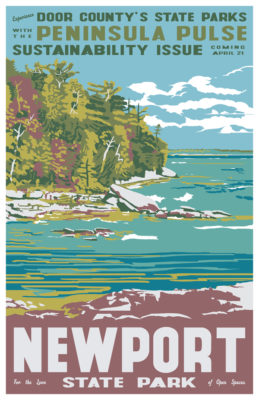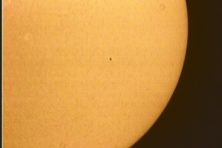The Brightest Nights
- Share
- Tweet
- Pin
- Share
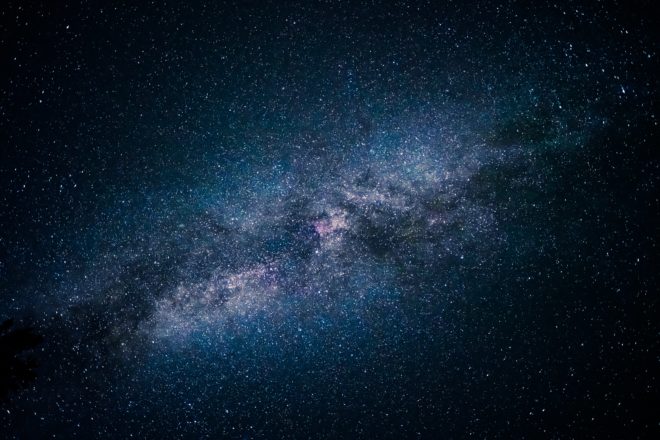
See the Perseid meteor shower Aug. 12 at Newport
The annual Perseid meteor shower started July 17 this year and will reach its peak Aug. 12, when Newport State Park is hosting Universe in the Park in collaboration with University of Wisconsin-Madison and some volunteer telescope owners. Though the meteors are visible from anywhere in Door County, Newport’s Dark Sky preservation offers a way to see more than the bright, moving rocks.
Beth Bartoli, the state park’s naturalist, said getting officially declared a Dark Sky Park took about five years, and park managers must follow strict regulations about even the smallest things, including the light bulbs used in the restrooms. Even without the meteor shower, Newport’s Universe in the Park programs and light-pollution–free beach are sights to see.
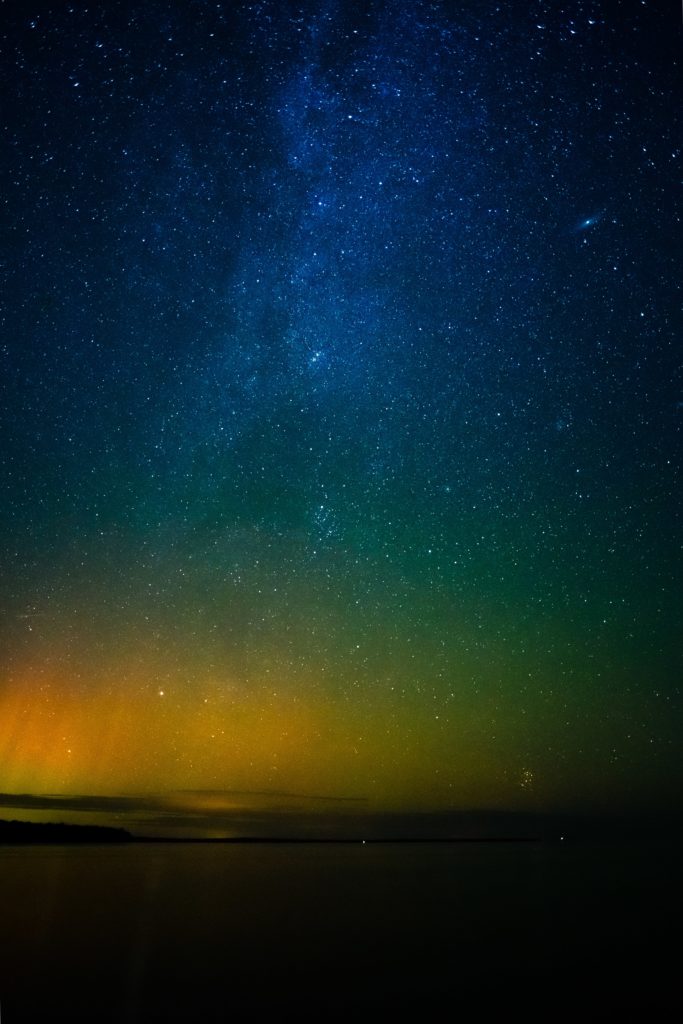
Even before nightfall – I arrived around 8:30 pm – people were propping the bathroom door open to get more light inside. I thought that would be the darkest it would get.
The Universe in the Park program, hosted by the UW Astronomy Department and Badger Talks, featured grad student Melissa Morris, who led 50 or so people through galaxies: where we are, what we can see and the tangled history of astronomy.
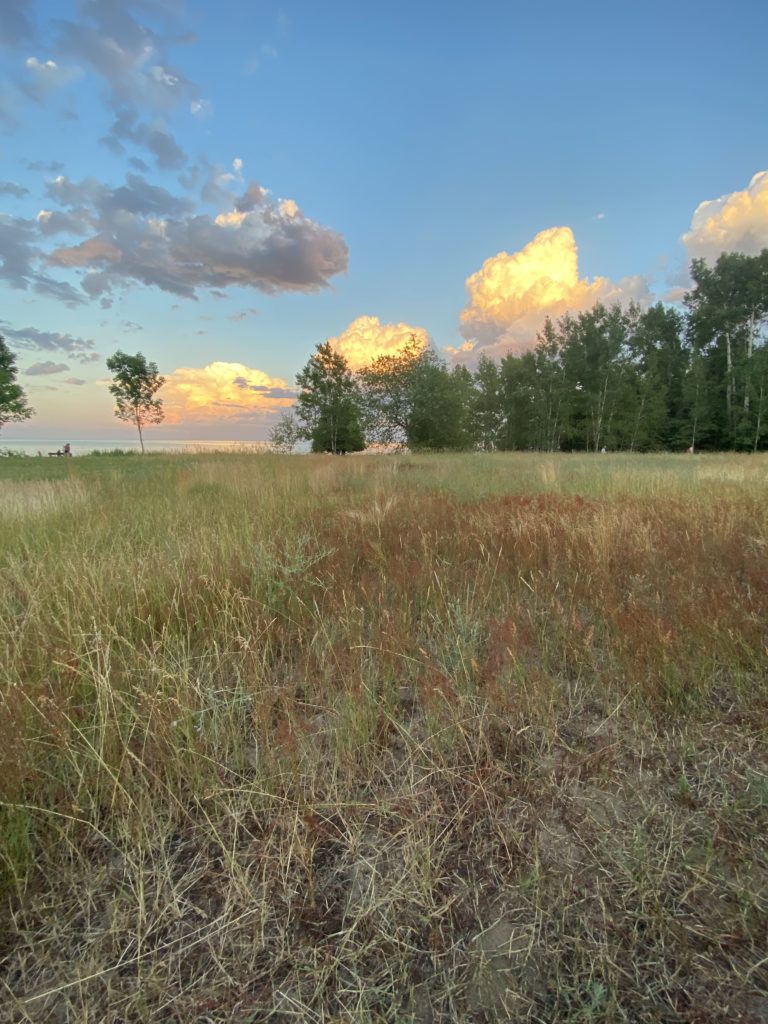
In the heyday of comets, astronomer Charles Messier ended up finding dozens of “fuzzy blobs,” Morris said, that turned out to be some of the first galaxies documented. Most of what she talked about – and what the volunteers who shared their telescopes showed us – were fuzzy blobs alongside tightly spaced stars and planets.
But even without the telescopes, the majesty of a completely dark night sky is incomparable, and if it weren’t for the fact that the park closes at 11 pm, I think many of us would have stayed until much later, just watching and listening. The volunteers, armed with green laser pointers and most of them self-taught, point out the planets, constellations and galaxies they were able to spot from experience.
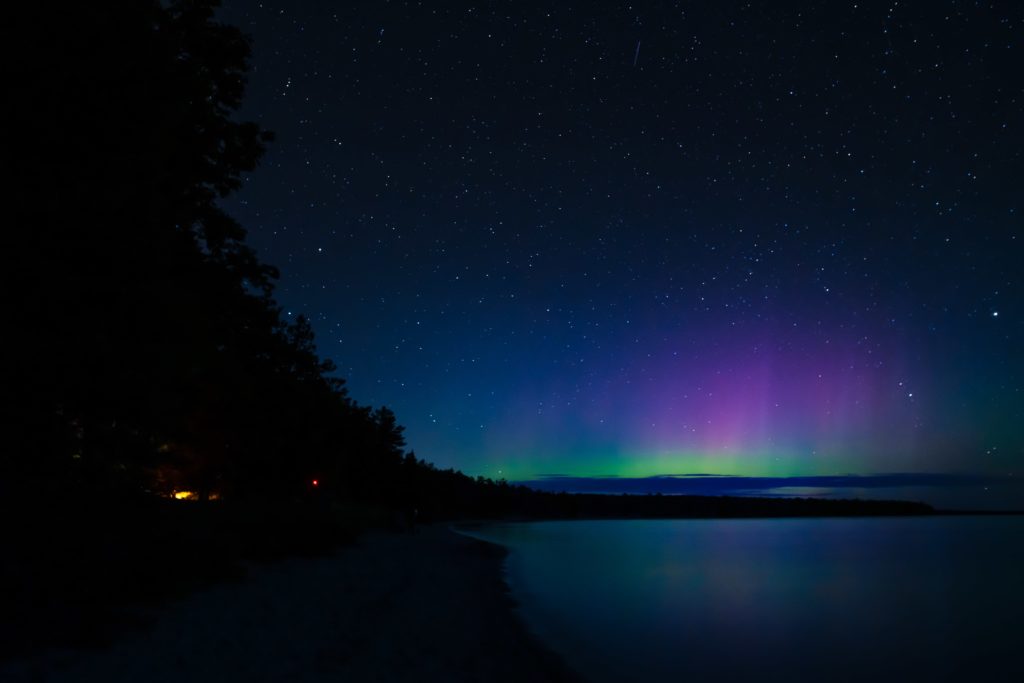
Seeing the actual rings of Saturn, even through a telescope, nearly brought me to tears, and the childlike gasp I let out when I saw a shooting star for the first time in my life was nothing compared to the joy I felt.
The Perseid meteor shower will last until Aug. 24, but the event on Aug. 12 is the only one involving telescopes. If you can’t attend then, check out Newport’s Facebook page to learn about any of this year’s other stargazing and cosmos-related events.

